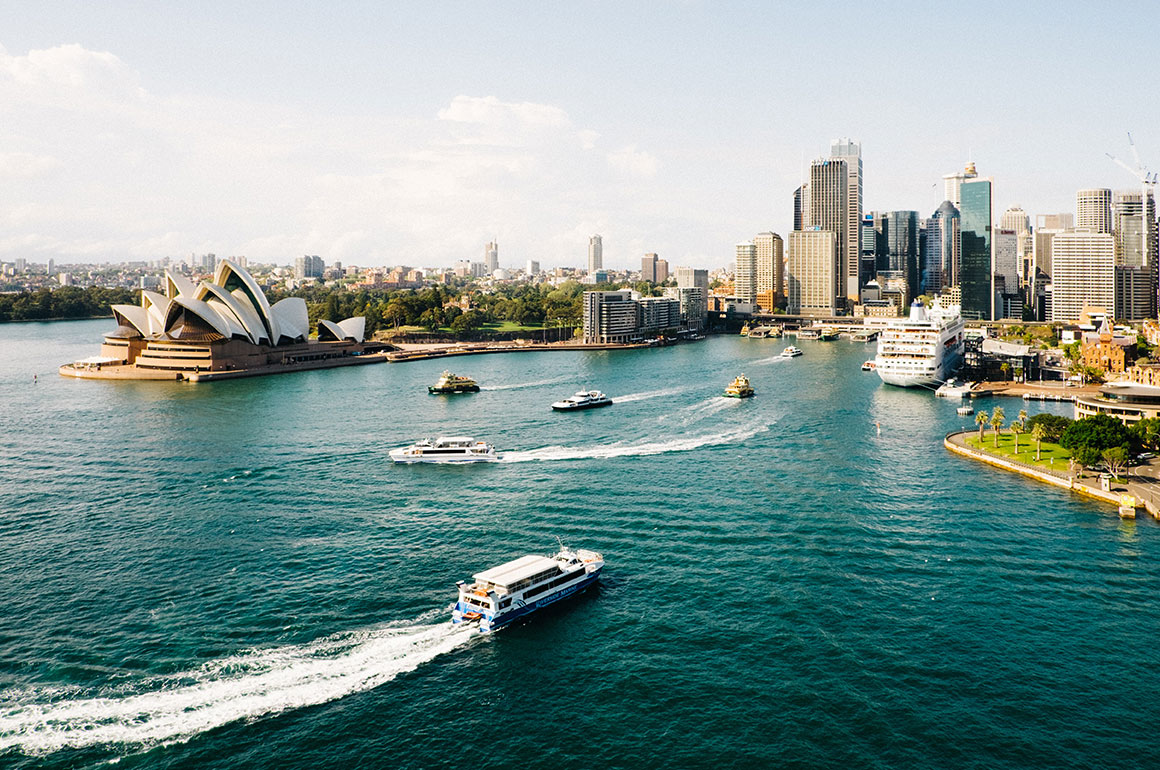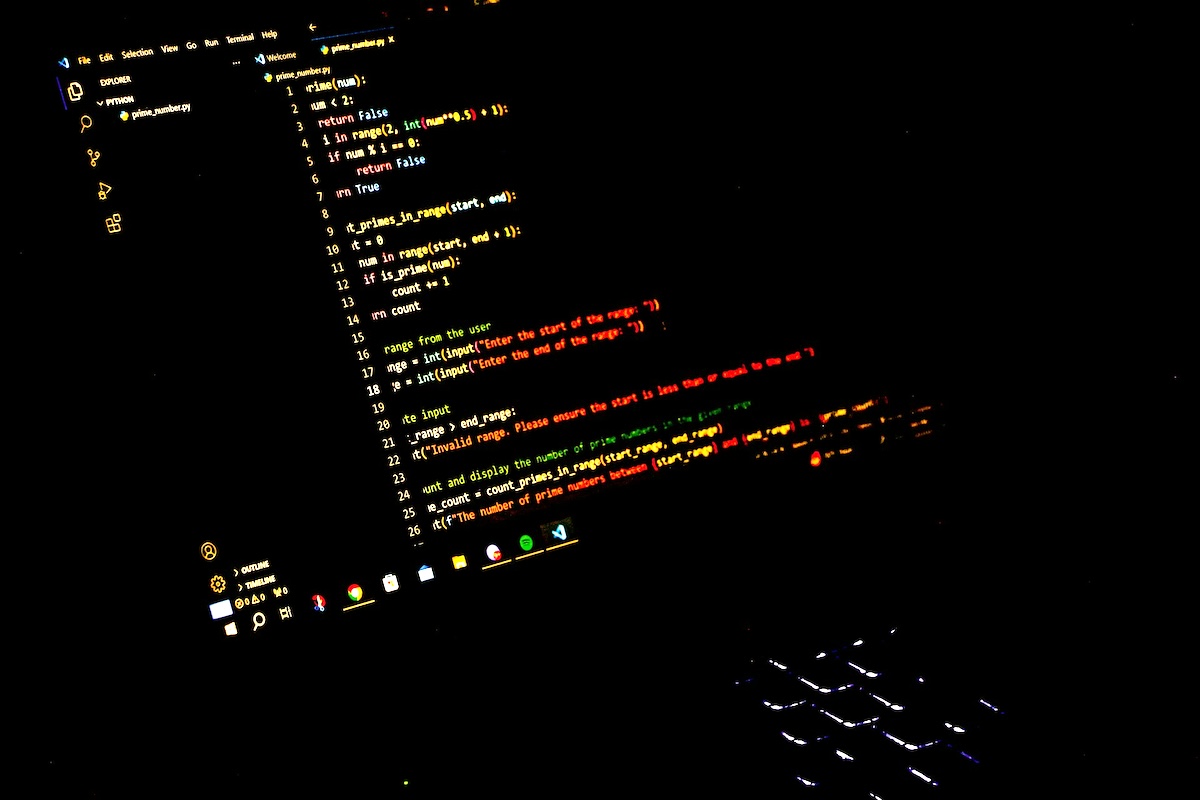Skift Take
How has Australia experienced and adapted to the pandemic from an event industry perspective? In our second global snapshot, we discuss all relevant regulations currently in place and provide a brief overview of the state of the local event industry.
The Global Snapshot gives insights into how different countries around the world have experienced and adapted to the pandemic from an industry perspective by providing a brief overview of relevant regulations and the state of the local event industry.
Situated in the Southern Hemisphere and surrounded by the warm waters of the Indian and the Pacific Oceans lies Australia. The country is home to a diverse range of unique wildlife, stunning beaches, and world-class cities. Australia offers experiences that will be hard to come by anywhere else in the world, like outback adventures, the Sydney Opera House, and the sunny Gold Coast.
But while Australia offers event professionals many one-of-a-kind venues and adventures “down under,” over the past two years, the hospitality and tourism sectors have suffered due to border closures and lockdowns in response to the Covid pandemic.
Here, we explore the impact of the pandemic on Australian event professionals and the industry as a whole — and take a closer look at how the sector is gradually recovering.
Current regulations and restrictions
The following information was provided on the 12th of December 2021. For updated information, please refer to the Australian government’s online resources.
Population: Estimated 26 million
Total Number of Cases: 228,930
Cases per 100 000 residents in the last seven days: 6
Cases Daily Average: 1,401
Deaths Daily Average: 7 (2,104 in total)
Vaccination Rate: Approx. 76% fully vaccinated (19,185,200)
Lockdown Level: Varies across regions
Mask Status: Recommended in all states, mandatory in some
Australia has enforced one of the longest and strictest lockdowns in the world. The country’s borders were closed on the 20th of March 2020 and effectively remained closed until the 1st of November 2021, when the PM announced that fully vaccinated Australian residents may travel internationally.
But restrictions still exist locally and vary from state to state. Since the beginning of the pandemic, Australia has essentially been operating as eight separate countries, with each territory and region implementing its own rules and regulations regarding travel, events, activities, and lockdown levels.
The country’s initial strategy for combating Covid was to reach “Covid-zero.” The measures taken to achieve “Covid-zero” included international border closures, rigorous contact tracing, and lockdowns implemented at a local level — with a single confirmed case being enough to trigger these kinds of measures. And the country was successful in keeping Covid from spreading locally for some time. However, strict measures have had an impact on livelihoods and mental health.
The country has since abandoned this approach due to the emergence of the Delta variant in June 2021. Subsequently, Australia has focused on mitigation measures like increasing the vaccination rate and learning to “live with the virus.”
EVENTS
Internationational events have not taken place since the beginning of the pandemic. Recently, travel has opened within Australia’s borders, and most (local) events have been given the green light. However, restrictions still exist on a region by region basis, and planners must check their local areas for guidance and support.
The Business Events Council of Australia (BECA) states on their website:
“On Friday, 30 July, National Cabinet agreed in principle to transition Australia’s National COVID-19 Response, providing a pathway forward for the country. Each phase of the plan is triggered by vaccination thresholds and aims to remove restrictions, end lockdowns, and domestic border closures, and recommence international travel — all of which are necessary for the business events industry to recover and prosper into the future.”
TRAVEL
International travel (entry) to Australia is currently not allowed and is only possible if you are exempt or granted an exemption through an application. However, entry is allowed for fully vaccinated residents of New Zealand, subject to certain regulations. On the 1st of November 2021, fully vaccinated Australian residents were granted permission for international travel when the country lifted outbound travel restrictions. Local travel measures still vary depending on region and territories.
Travelers entering or exiting the country will also need to:
1. Comply with a 14-day quarantine at a government facility at their expense.
2. Be fully vaccinated, with a vaccination certificate, provided in English with approved vaccines only.
3. Show proof of a negative PCR test, taken within the previous 72 hours before arrival.
4. Submit to a health screening on arrival and during their 14 day isolation period.
Additional travel restrictions are currently in place for people who have been in the following countries in the last 14 days: South Africa, Lesotho, Eswatini, Namibia, Botswana, Zimbabwe, Mozambique, or Malawi.
We recommend travelers check restrictions that apply to their country before booking and departure.
On the ground with Australian event professionals
EFFECTS ON THE INDUSTRY
As a result of the pandemic and ongoing restrictions, events and event professionals have faced significant hardships, with BECA reporting a loss of $35 billion in direct expenditure to the Australian economy and over 230,000 jobs being affected.
“The long-term impact on the global knowledge economy is silently suffering. Business events deliver more than just travel and hospitality spending. They are a driving force for innovation, providing researchers and practitioners with a platform to discuss and disseminate new ideas,” says Geoff Donaghy, CEO at the ICC Sydney (International Convention Centre Sydney).
Simon Thewlis, a Melbourne-based event organizer with decades of experience, confirms the last 16 months have been a real struggle for event professionals. Thewlis is one of nine people from their local industry who spearheaded the ‘Save Victorian Events‘ advocacy initiative.
Representing event professionals in the Australia state of Victoria, the campaign aims to give the local events sector a voice in requesting support and raising awareness of the positive impact events have on the economy and communities. “When it came to the current crisis, governments weren’t thinking about the 300 event people behind the scenes — they were just used to events happening. In the last 16 months, we’ve spent a huge amount of our time dealing with government, public servants, and particularly, in the last four or five months with the media to raise awareness,” explains Thewlis.
Anna Case, an event specialist from the Gold Coast, shares that it has been disheartening to watch the decline in the business events sector over the last two years. She notes that consumer confidence has dropped with interstate borders closing and city lockdowns on top of international travel restrictions — resulting in a heavy impact on many sectors in the meetings and the hospitality industry and a worsening skills shortage.
Save Victorian Events conducted a survey at the end of August showing that, on average, Victorian event industry businesses brought in 19 percent of their pre-pandemic income from March 2020 to May 2021. Estimates also suggest that approximately 75 percent of technical event talent has been lost.
ADAPTING TO CHALLENGES
Many planners have pivoted to the virtual event space, while others have resorted to renting out their fleets or working in bars, restaurants, and shops to keep their businesses running and the lights on. One event staging company, says Thewlis, started their own line of easy-to-assemble office furniture.
And while the industry has no doubt suffered, Case confirms that for many planners, events were postponed rather than canceled: “Fortunately, organizations have continued to be proactive and have secured new business into the future – the sales process did not stop. Many events affected by the pandemic were postponed for 2022 and beyond rather than canceled outright.”
Further, in adapting to the many changes the industry has experienced, Case explains that venues have introduced Covid operation policies, ranging from social distancing regulations to cleaning protocols. “Although it has been frustrating having to incorporate so many changes, everyone is embracing the measures to ensure events operate in ways that safeguard safety for all stakeholders,” she says.
Through Geoff Donaghy’s role with BECA, and most recently in convening the Sydney Business Events Coalition (with Sydney Business and Committee for Sydney), ICC Sydney is contributing to the business events industry and working towards revitalizing the Sydney CBD (Central Business District).
SILVER LININGS
Thewlis feels that the advancements in event tech are something good to come out of the pandemic:
“If you spoke to someone a few years ago about linking up events in multiple locations, people would start talking about satellite tracks or all sorts of expenses, and oh, golly, that’s difficult. So, what’s possible for events has changed dramatically — you can have people in all sorts of locations.”
Simon Thewlis, producer of events and experiences
Thewlis further adds that another benefit has been people developing a better appreciation for the value of life and realizing how important it is to bring people together.
And in some cases (like through the Save Victorian Events campaign), governments have also shifted their perspective on events due to ongoing awareness efforts. People are starting to realize the significance of the industry in connecting people and how events support the economy and workforce.
Donaghy agrees that the innovation seen in event tech has driven the industry forward, with ICC Sydney implementing high-quality virtual and hybrid event solutions that support clients to plan for multiple event scenarios regardless of the restrictions that may come into effect. Since both parties depend on events moving forward to stay in business, this arrangement is a win-win for the venue and the event organizers they service. “The current climate has brought about a need to be flexible and adjust to the variables that the pandemic presents, ” says Donaghy, “We take great pride in collaborating with clients to translate the latest regulations into events and taking into consideration the needs of in-person and remote audiences.”
For Case, the collaboration and relationship building has been her silver-lining takeaway: “We are a resilient industry, patient and positive (although, at times, it was grim). Business relationships have strengthened through the pandemic, and both organizers and suppliers are finding a middle ground with flexibility and pivoting to see new opportunities to create benefits for both sides.”
FUTURE OUTLOOK
Although many Australian event professionals have become accustomed to virtual events, territories across the country are beginning to emerge from lockdowns. But after months of little to no work, event professionals are starting to experience a significant uptick in in-person events.
The ICC Sydney affirms that clients have communicated their willingness to get back to face-to-face events. While the venue does not expect any significant return to normal levels for international business events until the second half of 2022, the venue’s local bookings are presently at over 250 events through to the first half of 2022 — with 1000 events in the pipeline until 2030 (both local and international).
Further, with the return of in-person events on the horizon, Donaghy believes that the city will benefit economically from attracting audiences (again) alongside the knowledge and experience generated when the top minds of industries gather to share information.
With an eye to the future, Case also predicts continued demand for virtual and hybrid events alongside strictly in-person gatherings. “Although people are enthusiastic about wanting to attend in-person events, meetings of the future will no doubt incorporate a hybrid of face-to-face and virtual event formats. This format creates an opportunity to open an event to new audiences and allows more flexibility in their learning and meeting environment,” adds Case.
Simon Thewlis hopes that the event industry of the future will see events being recognized as their own sector instead of part of tourism — and that people understand the value events bring to the world.
“I think as an industry, we have a bright future because there’s this need to bring people together. Events help organizations drive change, innovation and build communities. There is this desperate need to rebuild, which is, of course, going to take years. Whether it’s economies, businesses, or communities, events are fantastic at building and connecting.”
Simon Thewlis, producer of events and experiences
Thewlis also stressed the need for event professionals to work collaboratively across all event sectors (like business, festivals, and sports) while helping people rebuild. “We have pitched the idea to governments of an event-led recovery, like bringing people together and getting them working together, thinking differently, and creating. I mean, that’s what our industry does,” says Thewlis. With a call for greater self-promotion within the industry, Thewlis also suggests that the contributions of the event sector have long been undervalued and underestimated: “We’re not just administration and registration. We’re not just people going out and having a good time. We help build businesses and livelihoods too. This is the value of events, and we, as professionals, need to start explaining this more.”
CONCLUSION
Despite being dealt numerous blows through prolonged lockdowns and restrictions, Australian event professionals have demonstrated their ability to adapt and innovate while continuing to move forward.
“The one thing we proved is that as event professionals, we can do anything. From just a few resourceful events people getting together, we managed to make a difference to the lives of other event professionals and get our voice heard by banging on some doors.”
— Simon Thewlis
Would you like to get a snapshot of other destinations? Email [email protected] with your suggestion and reasons for your interest.





